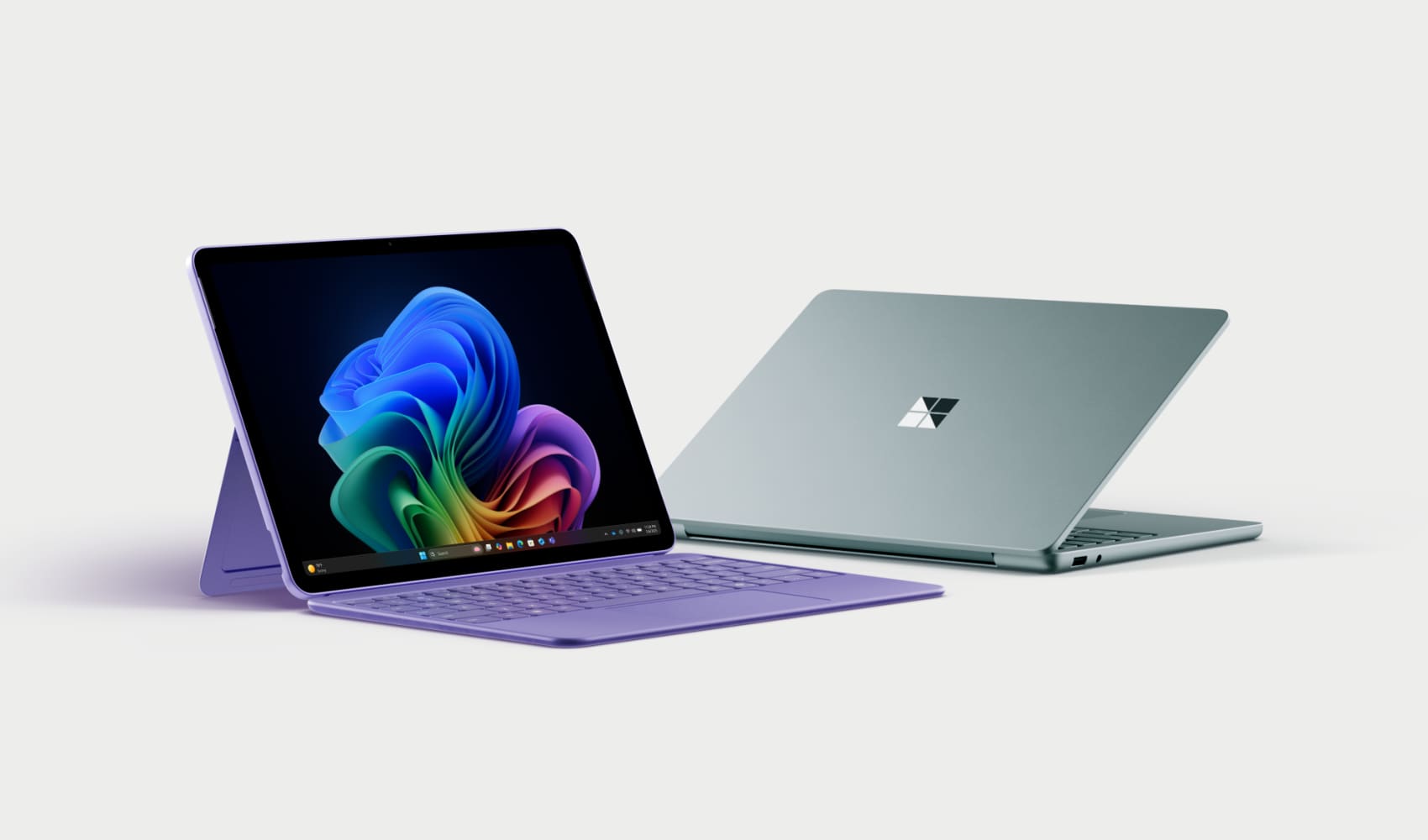AI Takes Over: 30% of Microsoft Code Written by AI!
AI Coders Unleashed: Satya Nadella Reveals 30% of Microsoft Code is AI-Generated!
The AI Revolution at Microsoft: A Code Awakening
Folks, the future is here, and it's writing code! Microsoft CEO Satya Nadella recently dropped a bombshell at Meta's LlamaCon AI developer event: a staggering 30% of Microsoft's code is now being written by artificial intelligence. Yes, you read that right! Imagine a world where AI isn't just assisting programmers, but actually taking the reins and crafting significant portions of the software we use every day. This isn't science fiction; it's the reality at one of the world's largest tech companies. But what does this mean for the future of programming, innovation, and even our jobs? Let's dive in!
Nadella's Revelation at LlamaCon: A Conversation with Zuckerberg
The announcement came during a fireside chat between Nadella and Meta CEO Mark Zuckerberg at Meta's inaugural LlamaCon event in Menlo Park, California. It’s always fascinating to see leaders of these tech giants sharing insights, isn't it? The conversation focused on the future of AI and its impact on software development. Nadella's statement wasn't just a casual remark; it was a declaration of how deeply AI has permeated Microsoft's development processes. "I'd say maybe 20%, 30% of the code that is inside of our repos today and some of our projects are probably all written by software," Nadella stated, underscoring the significant contribution of AI to their codebase.
AI Coding: A New Era of Efficiency?
The Speed Advantage
Think about it: traditionally, writing code is a slow, meticulous process. Developers spend countless hours debugging, testing, and refining their work. But what if AI could automate some of these tasks? What if AI could generate functional code snippets faster than any human? This is the promise of AI-assisted coding: dramatically increased efficiency. We're talking about the potential to accelerate software development cycles and bring new products to market faster than ever before.
Reducing Errors: A Quality Boost
Humans make mistakes, it's inevitable. But AI, trained on massive datasets of code, can often identify and prevent errors before they even occur. Imagine having a tireless coding assistant constantly reviewing your work, catching potential bugs, and suggesting improvements. This could lead to more robust and reliable software, which is a win for everyone.
Meta's Ambitious AI Plans: Building AI that Builds AI
Zuckerberg, never one to be outdone, revealed that Meta is also heavily invested in AI development. Their focus is on creating an AI model that can, in turn, build other AI models. Zuckerberg said Meta is focused on developing an AI model that can in turn build as much as half of other AI models within the next year. It's like a digital ouroboros – an AI snake eating its own tail! This ambitious goal highlights the escalating arms race in the AI space, with companies vying to create increasingly sophisticated and self-sufficient AI systems. What’s next, robots designing robots?
The Impact on Developers: Will AI Take Our Jobs?
A Shift in Roles, Not Replacement
Let's address the elephant in the room: will AI take over programmers' jobs? The short answer is likely no, at least not entirely. Instead, we're more likely to see a shift in the roles and responsibilities of developers. The focus will move from writing code from scratch to overseeing, guiding, and refining AI-generated code. Think of it as becoming a conductor of an AI orchestra.
Focus on Higher-Level Tasks
With AI handling the more mundane aspects of coding, developers can focus on higher-level tasks such as designing software architecture, solving complex problems, and creating innovative solutions. This is where human creativity and critical thinking skills truly shine. AI can automate the tedious parts, freeing up developers to focus on the more strategic and creative aspects of their work.
The Challenges of AI-Generated Code
Bias and Ethical Considerations
AI is only as good as the data it's trained on. If the training data contains biases, the AI will perpetuate those biases in the code it generates. This raises important ethical concerns about fairness, inclusivity, and the potential for AI to discriminate against certain groups. It’s crucial to ensure that AI systems are trained on diverse and representative datasets to mitigate these risks.
Security Vulnerabilities
AI-generated code can also introduce new security vulnerabilities if not carefully scrutinized. AI might unknowingly introduce flaws that could be exploited by malicious actors. Rigorous security testing and code reviews are essential to ensure the safety and integrity of AI-generated software.
The Future of Programming: A Symbiotic Relationship
AI as a Coding Partner
The future of programming is likely to be a symbiotic relationship between humans and AI. AI will act as a powerful coding partner, augmenting our abilities and helping us to create more complex and sophisticated software. We'll still need human developers to guide the process, ensure ethical considerations are addressed, and provide the creative spark that drives innovation.
Continuous Learning and Adaptation
As AI technology continues to evolve, developers will need to continuously learn and adapt. Embracing new tools, techniques, and workflows will be essential to stay ahead of the curve. The ability to work effectively with AI will become an increasingly valuable skill in the software development industry.
Specific Examples of AI in Microsoft's Codebase
While the exact details of which projects utilize AI code are confidential, we can speculate on potential applications. Consider areas like bug fixing, automated testing, and code completion as prime candidates for AI assistance. Think about the Azure cloud platform, Windows operating system, or even the Office suite – each contains millions of lines of code where AI could play a significant role.
The Importance of Data Quality and Training
As mentioned before, the quality of AI-generated code is directly tied to the quality of the data it's trained on. Microsoft's investment in large language models and extensive code repositories gives them a significant advantage in this area. They possess the resources and expertise to train AI systems on massive datasets of high-quality code, ensuring that the AI generates accurate, reliable, and secure software.
The Broader Implications for the Tech Industry
Microsoft's adoption of AI coding is not an isolated event. It signals a broader trend across the tech industry. Other companies are undoubtedly exploring and implementing AI-assisted development techniques. As AI technology matures, we can expect to see even more widespread adoption of AI coding in the years to come. This will revolutionize the way software is built, leading to faster innovation, improved quality, and new possibilities we can only begin to imagine.
Open Source Contributions and the AI Code Landscape
With Microsoft's open source initiatives, it's probable that aspects of their AI-generated code will indirectly influence open-source projects. AI's contribution to foundational libraries and modules could reshape how open-source developers approach their projects. Imagine, for instance, an AI optimizing an algorithm used across countless open-source applications.
AI's Impact on Security: A Double-Edged Sword
AI's impact on security is truly a double-edged sword. On one hand, it can help detect vulnerabilities and prevent cyberattacks. On the other hand, it could be exploited by malicious actors to create even more sophisticated threats. It’s an ongoing battle between the good guys and the bad guys, with AI playing a pivotal role on both sides.
The Democratization of Coding: Making Software Development More Accessible
AI coding could democratize software development, making it more accessible to people with limited programming skills. Imagine a future where anyone can build their own apps and websites with the help of AI. This could unleash a wave of innovation and creativity, empowering individuals and small businesses to create powerful solutions.
Looking Ahead: The Future is Coded with AI
Satya Nadella's revelation is a glimpse into the future of software development. AI is not just a buzzword; it's a real and powerful force that is transforming the way we build software. Embrace the change, learn new skills, and prepare for a future where AI and humans work together to create amazing things. The code is written on the wall, or rather, by the AI!
Conclusion
Satya Nadella's announcement that up to 30% of Microsoft's code is now AI-generated highlights a profound shift in the software development landscape. AI is no longer just a futuristic concept; it's a present-day reality that is transforming how we build software. This shift presents both opportunities and challenges, and it's essential for developers and businesses to adapt and embrace this new reality. From increased efficiency and improved quality to ethical considerations and security vulnerabilities, the impact of AI coding is far-reaching and transformative. As AI continues to evolve, we can expect to see even more widespread adoption of AI-assisted development techniques, leading to faster innovation and new possibilities we can only begin to imagine.
Frequently Asked Questions
- How accurate is AI-generated code?
AI-generated code's accuracy depends heavily on the training data and the complexity of the task. While AI can generate functional code, it often requires human review and refinement to ensure accuracy, security, and adherence to best practices.
- What are the best tools for AI-assisted coding?
Some popular tools include GitHub Copilot, Tabnine, and Kite. These tools provide features like code completion, bug detection, and automated testing.
- Can AI write entire applications from scratch?
Currently, AI is better at generating code snippets and automating specific tasks rather than writing entire applications from scratch. However, as AI technology evolves, this capability may become more feasible in the future.
- What ethical considerations should I be aware of when using AI coding tools?
Pay attention to potential biases in the AI's training data, security vulnerabilities in the generated code, and the impact on human jobs. Ensure that AI is used responsibly and ethically.
- How can I prepare for the future of programming with AI?
Focus on developing strong problem-solving skills, learning how to work effectively with AI tools, and staying up-to-date with the latest advancements in AI technology. Embrace continuous learning and adaptation to thrive in the evolving software development landscape.

